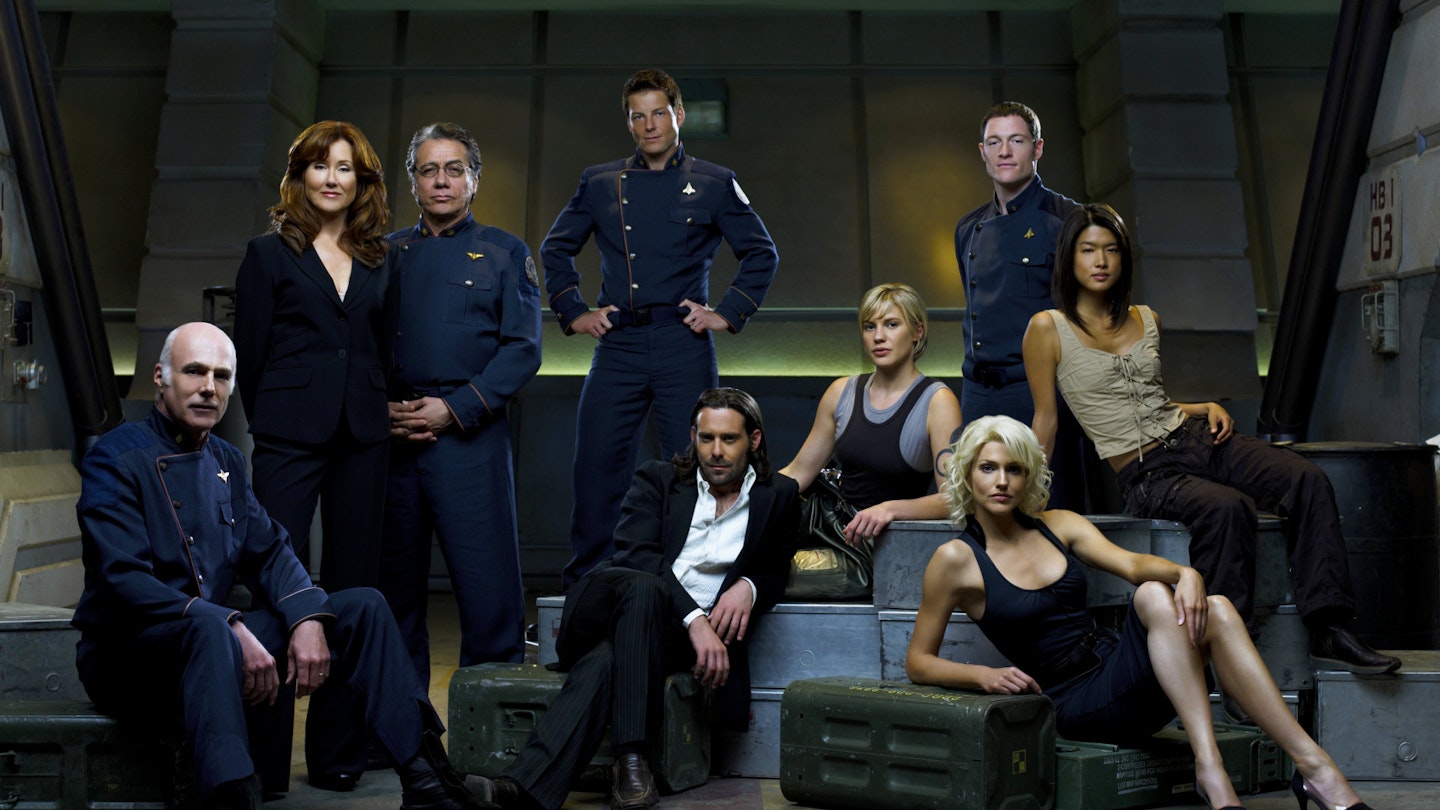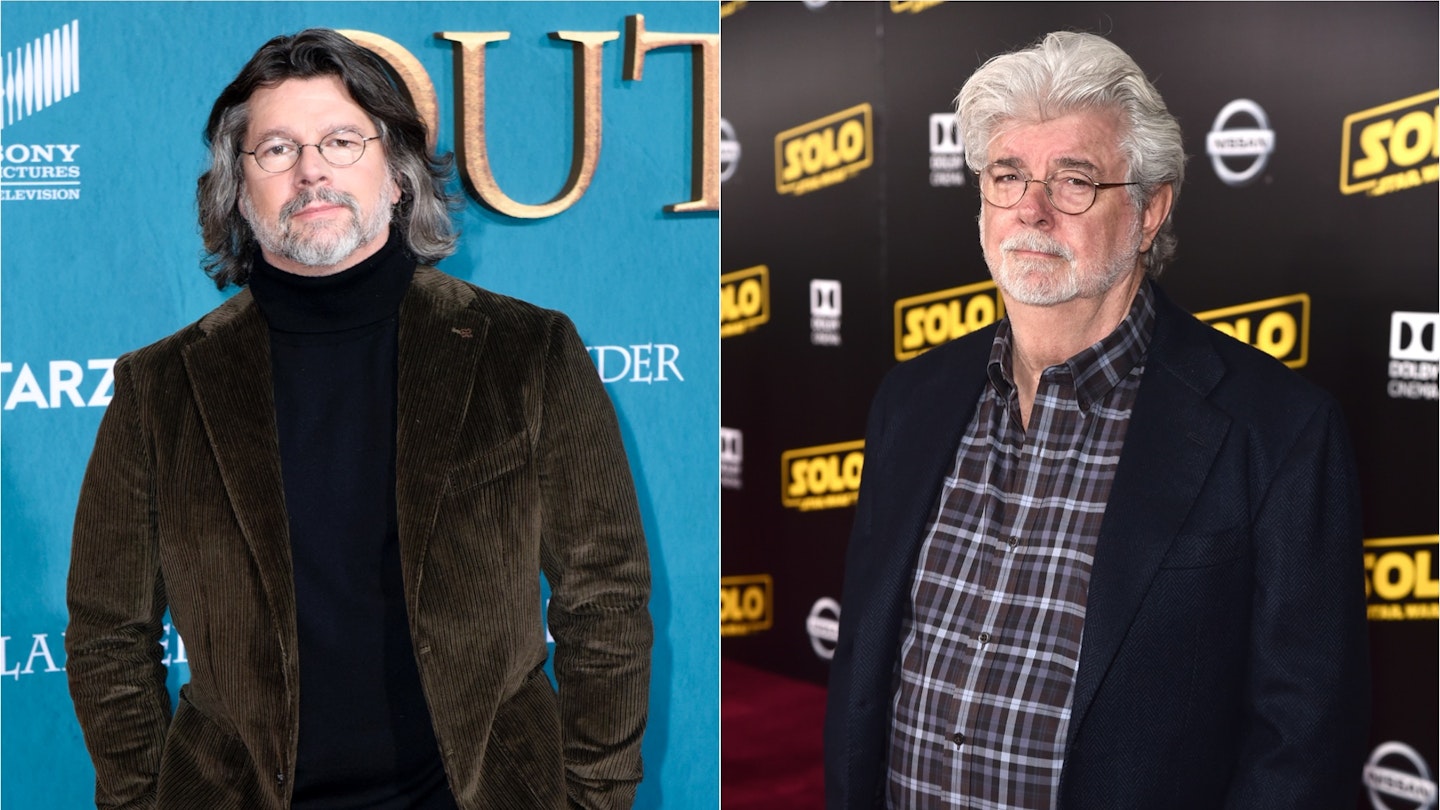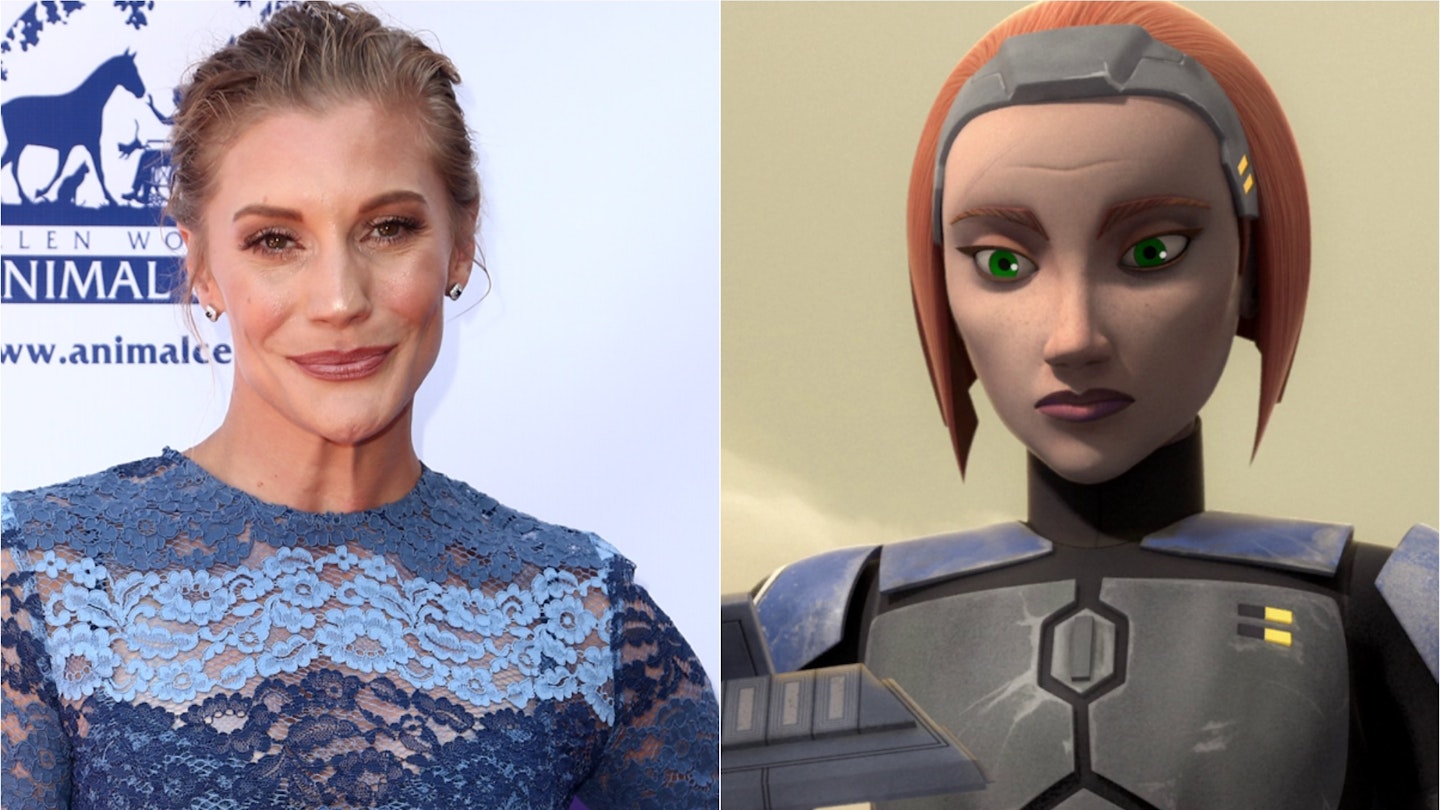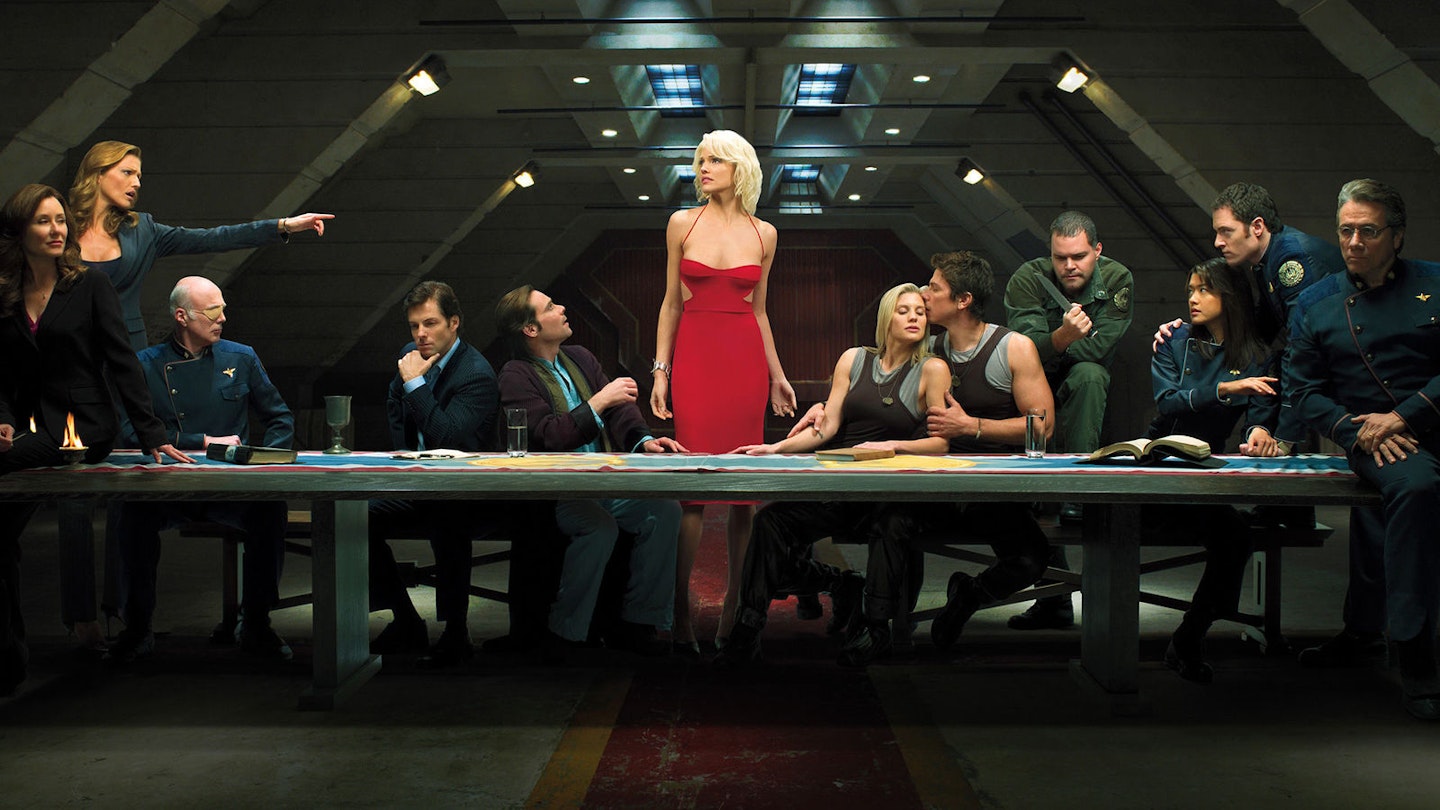Paradoxically, television is packed with reeking piles of rubbish but we are still in a golden age of US drama. And, amazingly, nothing has been more gripping, grown up, superbly scripted or supremely acted than the searing reimagining (by Ronald D. Moore and David Eick) of a cheesy 70s sci-fi adventure. The core premise remained: desperate remnants of humankind cross the universe in a ragtag fleet of ships, fleeing the man-made AI machines that evolved, rebelled and eradicated their creators. Clustered around the last battleship, under the command of William Adama, the survivors have one hope: to find the legendary Earth colonised long ago by a lost tribe of humans.
Gone were the Egyptian headdress helmets (although we kind of liked those). Gone (thank the gods) was the cutesy kid with the robotic dog. Gone the visits to the planets of the Viking people, the Wild West people, and the scantily-clad bar babes. No aliens. No techno-babble, time travel (except the illuminating flashbacks and the must-see backstory webisodes) or futuristic gadgetry. No flouting the known laws of physics. Robot warriors on the Colonials asses still have one scanning, humming red eye and the Fleets top guns still fly Vipers into combat. Whats different is, well, just everything else.
From the outset, this darkly dramatic odyssey with its gut-punching twists was engrossingly a post-9/11 parable for the 21st century. It was about war, love, hate, ethics, freedom, oppression and, increasingly towards the end, religion, faith, free will, destiny and the choices made in every society. Fantasy and special effects (fab though they are) took a back seat to the characters, whose psychology was explored to a depth beyond anything else on TV. This series was about what it is to be human good, bad or ugly.
Time magazine called it the best show on television, not just the best science-fiction show. It pulled in more adults (and more women) than any more typical space opera. And yet there remain people who have never seen an episode because they find the name off-putting. This is their loss, because the 2003-2009 Battlestar Galactica in every way transcends not just its juvenile 1978 source but the sci-fi genre itself. Fans include telly addicts Joss Whedon, himself a genre-buster of distinction, who said, Its so passionate, textured, complex, subversive and challenging that it dwarfs everything on TV and Stephen King, who called it Beautifully written and [theres] not a better acting troupe at work on television.
Said troupe evolved around Edward James Olmos as the indomitable Adama and Mary McDonnell as Laura Roslin, the former teacher shaken to find herself President while battling cancer! whose incredible emotional range gave the show a powerful heart. But the junior members of the ensemble were revelations. Unlikely to find themselves in magnificently realised roles like these again in their careers, James Callis (mad scientist in need of redemption), Michael Hogan (alcoholic executive officer), Jamie Bamber (angry Apollo), Katee Sackoff (rebellious, tortured, kick-ass Kara Starbuck Thrace), Grace Park (the Cylon model designated Number Eight), Aaron Douglas (beleaguered engineer), Canadian supermodel Tricia Helfer (conflicted Cylon Number Six) and Alessandro Juliani (Lt. Felix Gaeta) all did astonishing work. Even Richard Hatch, the source series himbo hero Apollo, made a cameo and remained, a rivetingly duplicitous recurring figure.
Season Four, broadcast in two chunks with a climbing-the-wall break due to the writers strike, proved the most challenging, soul-searching and devastatingly turbulent yet. Some of the series most burning issues who is the final Cylon? Whats the deal with Earth? What is a man? Is there a God? found resolution sooner than expected. Gob-smacking and heartrending revelations opened new cans of worms, more questions, mind-bending philosophising and a slew of tragedies. Since the extended-length finale finally aired, fan forums have raged with delirium and disappointment. All questions raised were answered, some of them beautifully; we just didnt like all the answers particularly the solution to the ongoing mystery of Starbuck and the 150,000 Years Later postscript. But on repeat viewing it makes more and more sense. For some the ending of something so awesome, ambitious, compelling and human was always going to be a let-down, because it had to be AN end. And it was never going to be and they all lived happily ever after.




